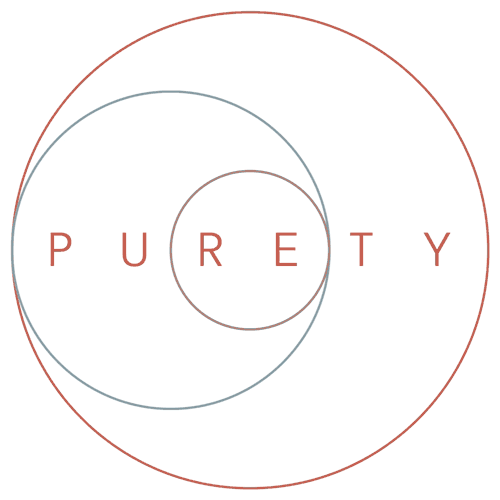Vitamin C Myth: Not All Vitamin C is the Same | Puretyclinic.com
Vitamin C is a skincare superstar that has gained a lot of attention for its powerful antioxidant properties and its ability to brighten the skin, reduce hyperpigmentation, and boost collagen production. However, a common misconception has led many to believe that all forms of Vitamin C in skincare products are the same. The reality is that the efficacy of Vitamin C in skincare heavily depends on its form, concentration, and formulation.
The Truth About Vitamin C in Skincare
When it comes to Vitamin C in skincare, not all formulations are created equal. Many products on the market boast about containing Vitamin C, but what they don't tell you is that they may contain only derivatives of Vitamin C, not the pure form. Vitamin C derivatives, such as Sodium Ascorbyl Phosphate, Ascorbyl Palmitate, or Magnesium Ascorbyl Phosphate, are often less effective than the most bioactive form of Vitamin C, known as L-ascorbic acid.
L-ascorbic acid is the gold standard in Vitamin C skincare because it is the purest and most potent form. It is the most researched and has the most evidence supporting its benefits for the skin. However, L-ascorbic acid is also highly unstable and can degrade quickly when exposed to air, light, or heat. This instability is one reason why some brands opt to use derivatives instead, as they are more stable but less effective.
Why L-Ascorbic Acid is Superior
L-ascorbic acid has been shown to penetrate the skin barrier more effectively and deliver the most potent antioxidant benefits. It helps to neutralize free radicals, which are responsible for aging the skin, and it plays a crucial role in collagen synthesis, which is vital for maintaining skin elasticity and reducing the appearance of fine lines and wrinkles. Additionally, L-ascorbic acid is highly effective at brightening the skin and reducing hyperpigmentation by inhibiting melanin production.
However, for L-ascorbic acid to work effectively, the formulation must meet three critical criteria: concentration, pH level, and base formulation.
The 3 Essential Criteria for Effective Vitamin C Serums
Vitamin C Concentration (10-20%): The concentration of Vitamin C in your serum is crucial. A concentration between 10% and 20% is ideal for reaping the maximum benefits without irritating the skin. Anything less than 10% may not provide the desired results, while concentrations higher than 20% could cause irritation and are often unnecessary. When checking product labels, ensure the concentration falls within this range to ensure effectiveness.
pH Level (3.2 to 3.5): The pH level of the serum plays a significant role in the stability and absorption of L-ascorbic acid. L-ascorbic acid requires a low pH to remain stable and to penetrate the skin effectively. A pH level between 3.2 and 3.5 is ideal. If the pH is too high, the Vitamin C may oxidize quickly, rendering it ineffective. Conversely, a pH that is too low may be too harsh for the skin, leading to irritation. Always look for serums that specify their pH level on the packaging or in the product description.
Aqueous Base: The base formulation of the serum is equally important. L-ascorbic acid is water-soluble, meaning it works best in an aqueous base. When checking the ingredients list, water should be the first ingredient, followed closely by L-ascorbic acid. This ensures that the serum is formulated to deliver L-ascorbic acid in its most effective form, allowing for optimal absorption and efficacy.
Why You Should Check the Label
Understanding the science behind Vitamin C formulations is just the first step. The next step is putting this knowledge into practice by carefully examining product labels before making a purchase. Many skincare products market themselves as Vitamin C serums but do not contain the right form, concentration, or pH of Vitamin C to deliver the promised results.
Before buying a Vitamin C serum, take a close look at the ingredients list. Ensure that L-ascorbic acid is listed as one of the first few ingredients and that the product mentions a concentration of 10-20%. If the product does not specify the pH level, you may need to do some research or reach out to the brand for clarification.
Recommended Products: Phyto-C Skincare
If you're looking for a high-quality Vitamin C serum that meets all of these criteria, Phyto-C Skincare offers a range of products that deliver L-ascorbic acid in its most potent and effective form. Phyto-C's serums are formulated with the ideal concentration of Vitamin C, maintain a pH level between 3.2 and 3.5, and are water-based to ensure optimal absorption.
For example, Phyto-C's Selenium in C Serum and Phyto-C Olive Serum are excellent choices. They contain L-ascorbic acid with both concentrations of 15% and are designed to provide maximum anti-aging, brightening, and acne-fighting benefits. These serums are also known for their stability and ability to deliver results without causing irritation. Click this link to explore their products: Skin Care – PuretyClinicShop.
Conclusion
In the world of skincare, knowledge is power. Not all Vitamin C is created equal, and understanding the differences can help you choose a product that will truly benefit your skin. Remember to look for serums with a 10-20% concentration of L-ascorbic acid, a pH of 3.2 to 3.5, and an aqueous base for the best results. By doing so, you'll be well on your way to achieving brighter, more youthful skin. And for those who want a reliable, effective Vitamin C serum, Phyto-C Skincare is a brand you can trust to meet these high standards.







